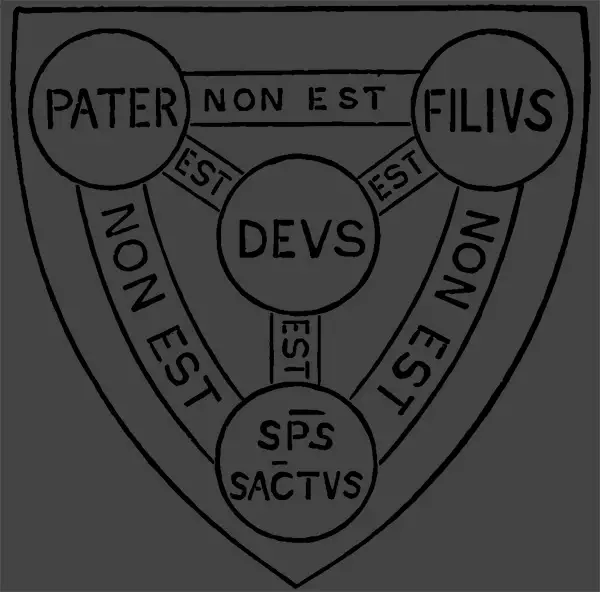Prologue of John
The Nuances of John 1:1: A Textual-Critical Analysis
The Johannine Prologue (John 1:1-14) is one of the most discussed passages in theological literature, especially concerning the nature of the Word (Logos) and its identity as Jesus Christ. John 1:1 reads: “(a) In the beginning was the Word, (b) and the Word was with [dem] God, (c) and the Word was God.” Verse 14 then clarifies that this Word became flesh and lived among humanity as Jesus Christ.
The Context of “the Beginning”
The first part of the verse (“In the beginning was the Word”) raises a crucial question: The beginning of what? The expression “In the beginning” must necessarily have a point of reference. Is it the beginning of the world? Or the beginning of the creation of angels? The ambiguity of this “beginning” undermines the argument that the Word has existed from eternity, as posited by many Trinitarians. The ambiguity of this “beginning” undermines the argument that the Word has existed from eternity, as posited by many Trinitarians. God, … created all things through Jesus Christ.” Thus, this “Word” was involved in the creation at the beginning of the world, but that does not negate the necessity of a beginning for the Word itself.
The Word “was with” God
The second part of the verse (“and the Word was with [dem] God”) emphasizes the distinction between the Word and God. The phrase “was with God” implies a form of relation, but certainly not identity. If the Word were God, how could it then be “with” God? That would be a logical inconsistency. John 1:2 (NIV) reinforces this point: “He [Jesus] was with God in the beginning.” The expression “with” implies a relationship, but not an identity equivalence.
The Word as “God”
The third and perhaps most controversial part of the verse (“and the Word was God”) is often cited as evidence for the deity of Jesus Christ and thus for the doctrine of the Trinity. However, this interpretation ignores grammatical nuances. In Greek, the language of the New Testament, the expression “and the Word was God” (καὶ θεὸς ἦν ὁ λόγος) is susceptible to various interpretations due to the absence of a definite article before “God.” Some scholars argue that it would be equally correct to translate the phrase as “and the Word was of divine origin,” emphasizing the Word’s special, but not identical, nature to God.
Introduction: Interpretation of John 1:1 considering Koine Greek
The correct translation of John 1:1 from the original Koine Greek text remains a subject of intense debate, especially regarding the phrase “and the Word was God” (c). In the first verse of the Gospel of John, it states that God’s Son, Christ Jesus, referred to here as the Word, “was with God in the beginning” (a+b).
The nuances of Greek grammar and their significance in John 1:1
John 1:1b does not state that the Messiah is God, but rather that he was “with God.” The word “the” in the Greek text is present and was likely omitted by translators because they thought it sounded awkward. Yet, this precision does have significance. In the original text for 1b, the Greek text reads:
και and 2532 CONJ ο the 3588 T-NSMλογος Word 3056 N-NSM ην was 2258 V-IXI-3S προς with 4314 PREP τον the 3588 T-ASM θεον God 2316 N-ASM
The definite article in Koine Greek and its theological implication in John 1:1
The presence of the definite article “τον” before “θεον” (God) in the Greek original presents a grammatical nuance that is crucial for the interpretation of the verse. In Greek grammar, the definite article “the” (τον) has a distinguishing function and emphasizes the uniqueness of the noun it is used with. Therefore, “τον θεον” (the God) in this context implies a specific God, further enhancing the distinction between “the Word” and “the God.”
Challenges for the Trinitarian interpretation due to the grammar in John 1:1
This subtle but crucial distinction between “the Word” and “the God” in the Greek original text demands careful consideration and challenges the common Trinitarian interpretation of the verse. It raises the question of whether “the Word” and “God” should be considered as identical or as distinct entities, suggesting the latter interpretation.
It raises the question of whether “the Word” and “God” should be considered as identical or as distinct entities, suggesting the latter interpretation.
The phrase “the God” in this verse identifies the one true God, the Father, which is why the definite article “the” is significant. While Jesus is referred to as God in this verse, there is a clear distinction between him and “the” God with whom he was. The God with whom Jesus was is “the” God, the Father. Jesus was not the same God with whom he was but he was God in terms of divinity, similar to his Father. As the Son, he inherits the attributes of his Father.
Divine and human inheritance: A universal principle
This inheritance of attributes is a universal principle that extends not only to the divine nature but also to the human nature. Just as a human child possesses the nature and form of humanity through inheritance, so the Son, by his divine origin, is inherently God.
Implications for the identity of the Father and the Son based on the precise use of the definite article
The precise use of the definite article “the” in the Greek text emphasizes the uniqueness and specific identity of the Father as “the” God. This implies a distinct individuality and highlights the relationship between the Father and the Son without merging them into a single identity. Therefore, this grammatical and contextual analysis questions the widespread Trinitarian interpretation that views the Father and the Son as identical manifestations of a single God. It rather suggests that they are distinct but closely related entities within the divine spectrum.
The analogy between Adam and Eve and the structure of John 1:1: Distinction between the Word and the God
The interpretation of John 1:1 can be illuminated by comparing it to a similar grammatical structure but with different subjects. For example, let’s consider Adam and Eve: “In the beginning was the woman, and the woman was with [dem] man, and the woman was human.” In this context, Adam is “the man,” and the woman is Eve. Although Eve is human, she is not “the man” in identity. They are two distinct individuals.
Similarly, considering the structure of John 1:1, one could argue: “In the beginning was the Word, and the Word was with [dem] “God, and the Word was divine.” Here, “the God” is a distinct identity, and the Word, although divine, is not “the God” in identity. They are two different entities.
The Challenge of the Trinitarian View: The Individual Identity of the Word and God in John 1:1
This analogy highlights the individual identity and distinctive nature of the Word and “the God” with whom it was. It poses a challenge to the Trinitarian view, which considers the Father and the Word as one and the same divine identity. The language and structure of the verse imply, instead, that while both are divine, they still represent distinct identities within the divine spectrum.
Interpretation of John 1:1: The Relationship between the Word, the Son, and the Supreme Deity, the Father
When viewed from this perspective, the verse appears as follows: “In the beginning was the Word, and the Word was with the Deity, and the Word was of divine nature.” The Word, the Son, was with the Supreme Deity, the Father, and also possessed a divine nature. However, the Son was not “the” Deity; he was not “the” Father. Nevertheless, the Son inherited the divine nature of the Father.
The Uniqueness of the Father and the Son: Distinction in Identity despite a shared divine nature and Challenges for the Trinitarian Perspective
This nuance in language and interpretation highlights the uniqueness of each identity within this divine context. While the Word and the Deity both possess divine attributes, they are not identical. While they share the same divine quality, nature, and deity, they remain as distinct entities as Father and Son. Such a finding challenges the Trinitarian view, which sees them as a single divine identity. sieht, in Frage. It is implied that, although both are divine, they still represent separate identities within the realm of deity.
The Relationship between the Son and the Deity: An Analysis of the Divine Identity and Inheritance before Temporality
In a state before time, as we know it, the Word, the Son, existed with the Deity, the Father. The Son is not “the” Deity, the Father, and yet he is divine as he possesses the essence and attributes of the Father through inheritance. This status of divinity is attributed to the Son through his direct relationship with the Father. So simple and yet so complex is the structure of this divine relationship, which clearly shows that while both entities possess divine qualities, they are distinctly separated in their identities.
The Divine Origin of the Son: Begotten and not created, a distinction in identity and temporal status
Before temporality, as it exists in our understanding, the Son was brought forth from the substance of the Father; not created, but begotten. Due to this immediate origin, the Son shares the divine nature of the Father, as expressed in Colossians 1:19, where it says: “For it pleased God that in him all the fullness should dwell.” Although Father and Son are equal in essence, they differ in their temporal and existential dimension. The Father exists without beginning and is greater in this sense, while the Son has a definable starting point of his personality. Both share the divine substance but differ in their identity and temporal status.







